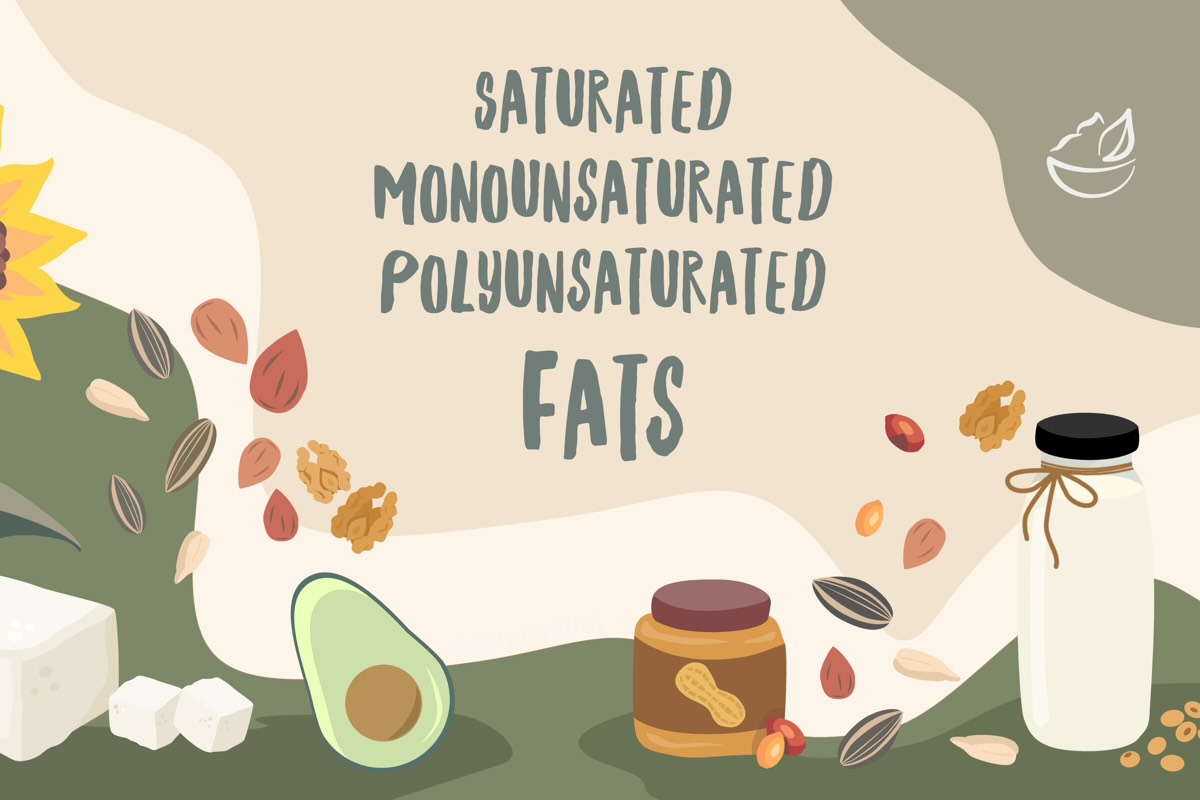Were you told to “avoid fats from your diet”? Well, have you heard about Healthy fats?
Looked at low-fat and non-fat food options at the grocery store thinking it will help reduce weight and keep you healthy?
Well then, this blog is for you.
Here’s a reality — Ever since the world has made a move towards a non-fat food world, it has only resulted in making people fatter and sicker. Fat is quite an important nutrient that is not given the respect it deserves. It’s just that some fats are healthier than others and you need to know which ones you should consume.
Before we take you there, let’s start with the basics.
What Is Fat?
Fat is one of the three macronutrients in your diet (the other two being proteins and carbs), found in both plant and animal foods. It provides energy for the body and supports cell growth.
It should be consumed within a limit and one should know that some types of fats are healthier than others.
Does Your Body Need Fats?
Oh, yes, it does!
Each gram of fat gives your body 9 calories. It helps store the energy in excess of what your body needs as a secondary source. It is the energy source that is used when the calories from carbohydrates are exhausted.
Know-how plays a vital role in your body’s optimal growth and nutrition as:
-
It’s an important part of the cell membrane and an important source for development.
-
It aids in the absorption of fat-soluble vitamins (vitamins A, D, E, and K).
-
It plays an essential role in keeping your skin and hair healthy.
-
It takes care of certain basic processes in the body such as neurological processes, reproduction, blood clotting, immune response, etc.
-
It adds flavor to your food and keeps you feeling fuller.
What Are The Different Fat Types?
Just as carbs, it is more about the type of fat you’re consuming than the quantity you’re consuming it in. Below are the different types of fats in the food:
Unsaturated fats
Unsaturated fats are ‘healthy fats’ that help maintain cholesterol, which is a fatty substance in your body. These are found in higher proportions in plant foods.
These are sources that are liquid at room temperature and play a beneficial role in avoiding the risk of heart attack, stroke, and vascular dementia.
There are two types of unsaturated fats:
-
Monounsaturated fats
- Avocados
- Olives
- Nuts such as almonds, cashews, hazelnuts, peanuts, macadamias and pecans
- Nut butters
- Seeds such as sesame and pumpkin seeds
- Canola, olive and peanut oils
-
Polyunsaturated fats
- Sunflower,canola, soybean, and flaxseed oils
- Walnuts
- Flax seeds
- Fish
Have you heard about polyunsaturated fat? These are significant types of fat that have been proven to have benefits for inflammation, diabetes, heart disease, depression, and other health conditions.
Omega-3 and Omega-6 fats are important sources of polyunsaturated fat. These are some of the few fats that the body can’t produce on its own, so they have to be taken through external sources like food.
Even though Omega-6 fats are commonly consumed in today’s diets, omega-3 fats are usually forgotten about or consumed in much smaller amounts.
Evidence shows that the evolutionary diet of humans provided a ratio of omega-6 to omega-3 fats between 1-to-1 and 4-to-1.
Good plant sources of omega-3 fats:
- flax seeds
- walnuts
- canola or soybean oil
You must know that all the foods sources of fats have a variety of specific types of fats.
Saturated Fats
Found commonly in animal products, these are solid at high temperatures and are not damaged by cooking. You must have heard that the source of saturated fat is mainly animal foods, but plant foods, such as coconut, coconut oil, palm oil, and palm kernel oil also have a high concentration of saturated fats
According to the Dietary Guidelines for Americans, one should consume just about less than 10 percent of calories from saturated fats. This can also be done by limiting foods, beverages, and alcoholic beverages containing higher levels of sugars, saturated fat, and sodium. A study has been conducted that concludes eating moderate amounts of unsaturated fats in place of saturated and trans fats can have a positive impact on your health.
Some of the common food sources of saturated fats:
- Meat products (poultry, sausage, bacon, beef, hamburgers)
- Most fast food dishes
- Cheese, butter and other dairy products
- Snack foods
- Milkshakes and ice creams
- Cocoa butter, chocolate and chocolate spreads
- Coconut and palm oils
Trans Fats
These are the fats that are created naturally in smaller proportions in dairy products, beef, and lamb. Trans fat consumption can result in a variety of health issues such as Inflammation, harmful cholesterol alterations, poor arterial function, insulin resistance, and increased belly fat. All these problems have been related to the consumption of trans fats.
Some of the common foods with trans fat:
- Vegetable Shortening (any type of fat that is solid at room temperature)
- Baked goods (made with vegetable shortening or margarine)
- Fried fast foods
- Non-dairy coffee creamer
- Ready-to-use frostings
- Snack foods
- Refrigerated dough
Artificial trans fats are created through hydrogenation. This process converts liquid vegetable oils into semi-stable partly hydrogenated oil. Trans fats also can be observed certainly in meat and dairy.
Though the quantity of trans fat in meals has declined in recent years, and the FDA’s ban of trans fat went into impact in June 2018, they’re nevertheless observed in a few products, together with fried or baked ingredients and non-dairy espresso creamers, because of positive exemptions to the ban.
To lessen your consumption, make certain to study labels and take a look at element lists for partly hydrogenated oil — in particular, whilst shopping for any of the ingredients above.
At the end of the day, the first-rate manner to keep away from trans fat is to restrict your consumption of processed and fried speedy meals. Instead, consume a healthful weight loss plan wealthy in fruit, vegetables, entire grains, healthful fat, and lean protein.
What’s the ideal consumption of fat per day?
The ideal daily total fat value is 78 grams per day. Based on a 2,000 calorie daily diet, the ideal value may vary according to the calorie needs of your body.
Change The Way You Consume Healthy Fats With Plantiful

Cutting away fat from your diet is not the solution. Instead, be smart about watching your intake and making the right choices when it comes to fat. After all, it serves a good number of important functions that go on in your body, in addition to making your food taste delicious.
Plantiful can be your one-stop solution for watching your intake and making healthy choices for your meals. We have various plant-based meals that serve your body just right. Explore the app, check the nutritional content and just enjoy the delicious meals.




